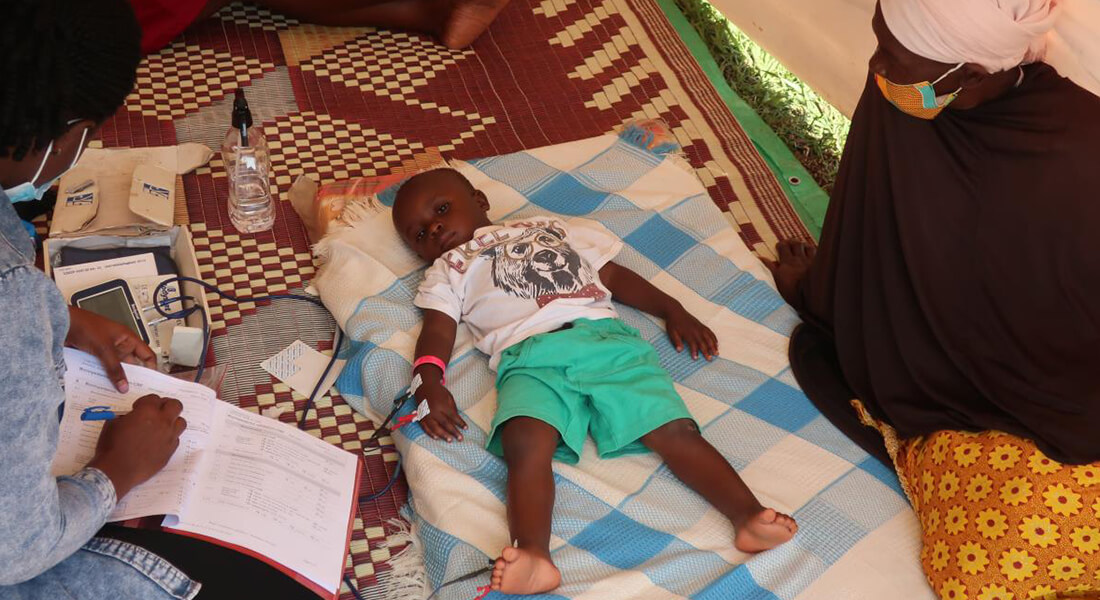PhD defence Optimizing research approaches: Methodological advances in studying human milk and infant growth and body composit

PhD defence by
Jack Ivor Lewis
About the PhD thesis
Nutritional exposures in early life can have lasting effects on metabolic health and chronic disease risk. Alterations in growth and body composition (BC) during critical windows of development may explain some of these associations. As the earliest nutritional exposure for many infants, human milk (HM) may contribute to BC development and thus chronic disease risk. However, the study of both paediatric BC and HM are complicated by methodological difficulties, creating a challenging research environment.
The overall objective of this thesis was to develop improved tools for the study of HM and BC, and is a culmination of two separate studies; Mothers, Infants, and Lactation Quality (MILQ) and Milk affecting growth, cognition, and the gut in child stunting (MAGNUS).
In paper I, we calibrated bioelectrical impedance (BIA) for use in Ugadan children with stunted linear growth using isotope dilution as a reference method among 50 children aged 12-59 mo.
In paper II, we estimated BC using this calibrated BIA in a cohort of 750 stunted Ugandan children aged 12-59 mo who were enrolled to the MAGNUS nutritional intervention study. We further investigated correlates of BC at baseline.
Paper III presents globally representative HM macronutrient reference values (RV) which combine longitudinal HM macronutrient data from mothers in Bangladesh, Brazil, Denmark, and The Gambia, between 1 and 8.5 mo post-partum.
In paper I we developed a BIA equation that performed with a prediction error of 4.5%. for FFM. Including HAZ in the equation explained a further 1% which suggests that degree of stunting changes the relationship between whole-body impedance and FFM.
In paper II, among 750 stunted children we found deficits in fat mass (FM), fat-free mass (FFM), and FM index (FMI), but not FFM index (FFMI), compared to UK references, providing suggestive evidence of FFM protection at the expense of linear growth. We report that inflammatory markers CRP and AGP were inversely associated with linear growth and accordingly with FFM, but not FM, making systemic inflammation an interesting target for intervention. Longer continued breastfeeding was associated with greater FFM and FM, proportionally to greater height. A positive rapid malaria test was associated with shorter height, greater FMI, but not with FFMI.
In paper III, 2194 HM samples were included in new macronutrient RVs, which were generated using the powerful GAMLSS framework. Median HM protein reduced from 1.15 g/100 mL at 1 month to 0.8 g/100 mL at 4 months postpartum from where it remained stable. Median HM carbohydrate, fat, and energy were stable across lactation at around 6.8 g/100 mL and 3.2 g/100 mL, and 600 kcal/L, respectively.
We propose that characteristic alterations of limb proportions in stunting could change the relationship between whole-body impedance and FFM. Whether this effect continues along a non-stunted range of HAZ remains to be investigated. Reducing systemic inflammation in stunted children may improve linear and FFM development without elevating FM. Malaria may be one infectious burden contributing to elevated inflammation in these children. World Health Organisation recommendations to continue breastfeeding to at least 2 years are also supported.
HM macronutrient RVs were produced from samples collected and analysed with standardised protocols from geographically and genetically diverse populations. We encourage their use in future research and practice as normative values.
2024, 221 pages.
Time
23 August 2024, 13:00
Place
Festauditoriet, Bülowsvej 17. 1870 Frederiksberg C
Zoom Meeting: https://ucph-ku.zoom.us/j/68196501902?pwd=JA0t0Gd1y5b13AVjWJJ4tvHeaFb1bo.1
Meeting ID: 681 9650 1902
Passcode: 015426
Opponents
Professor Faidon Magkos (chair), Department of Nutrition, Exercise and Sports, Faculty of Science, University of Copenhagen, Denmark.
Professor Tsinuel Girma, Department of Pediatrics and Child Health, Jimma University, Ethiopia; Director for the Harvard T.H. Chan School of Public Health Fenot Project, USA.
Chief Physician Bente Utoft Andreassen, Department of Paediatrics and Adolescent Medicine, Rigshospitalet, Denmark.
Main supervisor
Professor Christian Mølgaard, Department of Nutrition, Exercise and Sports, Faculty of Science, University of Copenhagen, Denmark.
CO-supervisors
Professor Emeritus Kim F Michaelsen, Department of Nutrition, Exercise and Sports, Faculty of Science, University of Copenhagen, Denmark.
